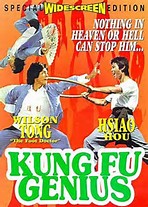Writer/director Walerian Borowczyk gives us four stories of
sin and hedonism. Unlike most anthology
films, each tale is about as good, if not better than the one that preceded
it. While each of them have their own
faults, the loving way Borowczyk films his luscious leading ladies is a marvel
to behold.
In the first story, The Tide (***), a twenty-year-old guy
takes his teenage cousin to the beach.
When the tide comes in, they are left stranded on the rocks. She soon learns it’s all been a plot by him
to get her alone so he can teach her the art of lovemaking. He instructs her to keep her sensual rhythm
in time with the tide and that she should conclude their lovemaking when the
tide rolls back out.
This sequence works because the location is so crucial to
the characters’ immoral actions. The
time restraint of the tide also gives it an urgency that some of the other
stories lack. The sensual way Borowczyk
films the lovers is genuinely erotic. Despite
all the close-ups of butts and genitals, it’s the simple shot of our heroine’s
mouth that remains the most captivating.
Therese the Philosopher (***) has a religious slant that
gives it more than a little kick. Locked
in her attic by her strict mother, and given only cucumbers to eat, lonely
Therese reads biblical works to atone for her supposed sins. She eventually finds some pornographic books
in the attic and gets turned on. Guess
what happens to the cucumbers.
Like The Tide, this episode builds gradually. The reason it works so well is that we sympathize
with Therese. Because of that, we get
just as turned on as she does. I just
wish Borowczyk came up with a snazzier ending as the whole thing sort of
fizzles out.
Elizabeth Bathory (*** ½) is easily the best segment. In it, the notorious bloodthirsty Countess goes
around the countryside finding young virgin girls. She then takes them back to her castle where
they are free to get all soaped up and run around naked. She later bathes in their blood to keep up
her youthful appearance.
This sequence benefits from lots of scenes of gratuitous nudity. (The part with the pearl is particularly
graphic.) It also helps that the
vampirism isn’t treated in a supernatural manner. We never really know if the Countess attains
her immortality when she bathes in the virgins’ blood. The ambiguity of the scene, as well as the
eerie way Borowczyk films it, makes this the standout tale.
The final story is Lucretia Borgia (***). In it, the Pope has a three-way with his son
and daughter. This one is the slightest
of the bunch, but there is no denying that even though it’s sacrilegious and
incestual, it’s still kind of hot. Borowczyk
just has a knack for doing that. That’s
sort of his thing. These are “immoral”
tales after all, but they still have the power to titillate.
Borowczyk originally included a fifth tale, but he decided to
expand it to feature length and release it separately. That film of course, was The Beast. If you haven’t seen that jaw-dropping bit of
insanity, you really owe it to yourself to check it out. Overall, I think Immoral Tales is more
consistently entertaining. However, if
you want to see some WTF lunacy, by all means, seek it out.






